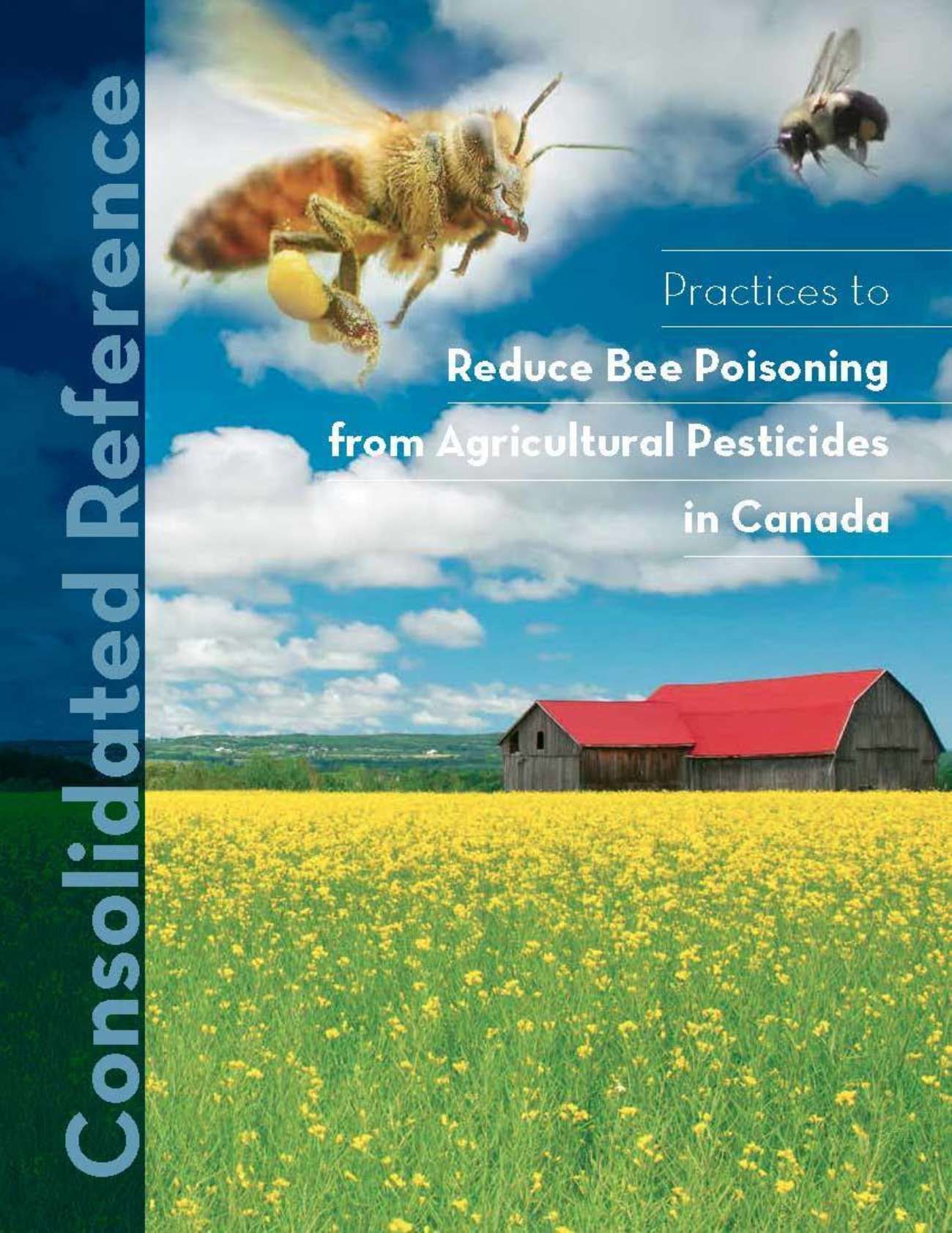
Practices to Reduce Bee Poisoning from Agricultural Pesticides
This guide provides information for farmers, beekeepers, and pesticide applicators on how to reduce bee poisonings from agricultural pesticides. Both managed bees and wild bees potentially can be harmed by pesticides used on crops. For many beekeepers, it has become increasingly challenging to keep honey bee colonies healthy. By using pesticides in a thoughtful manner, following label instructions, and considering managed and wild bees in crop protection plans, we can help reduce one source of harm to bees.
This guide provides information for farmers, beekeepers, and pesticide applicators on how to reduce bee poisonings from agricultural pesticides. The underlying cause of most bee poisoning incidents is a lack of information or awareness. Both beekeepers and growers benefit from developing working relationships and familiarizing themselves with each other’s management practices.
This guide entitled Practices to Reduce Bee Poisoning From Agricultural Pesticides in Canada, and produced by Pollinator Partnership Canada, was commissioned for discussion purposes by Agriculture and Agri-Food Canada (AAFC) on behalf of the Bee Health Roundtable, an industry-government forum.